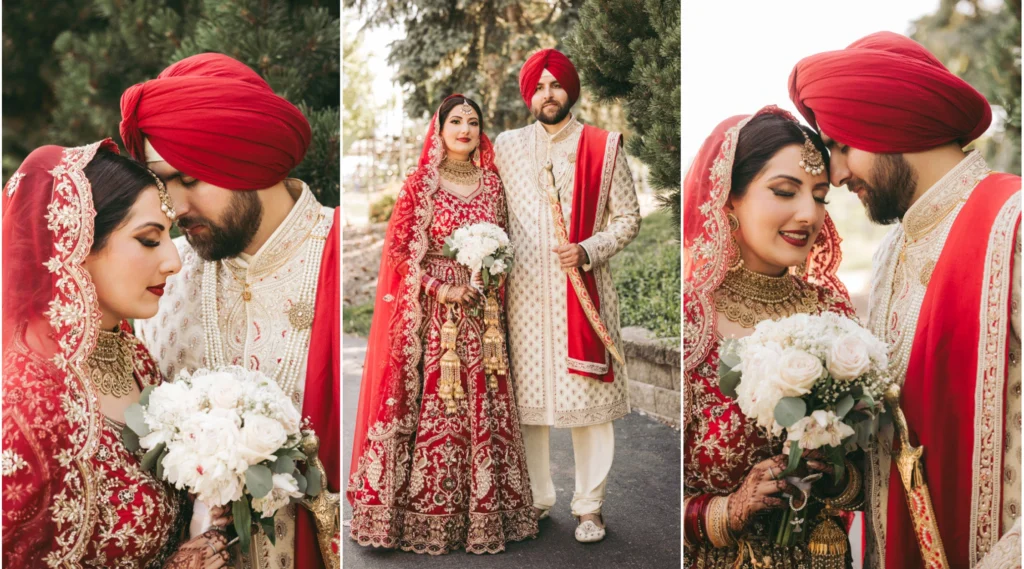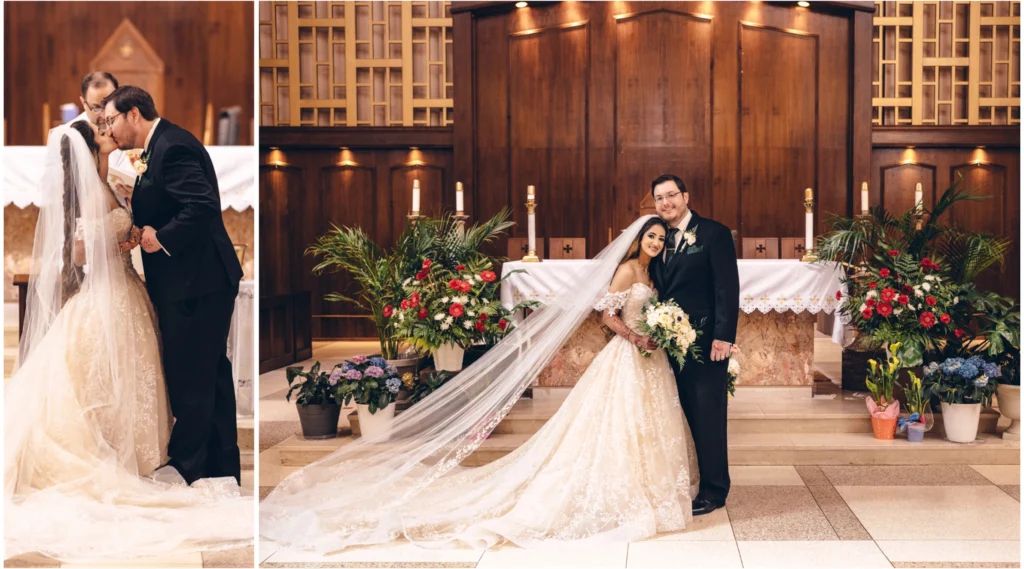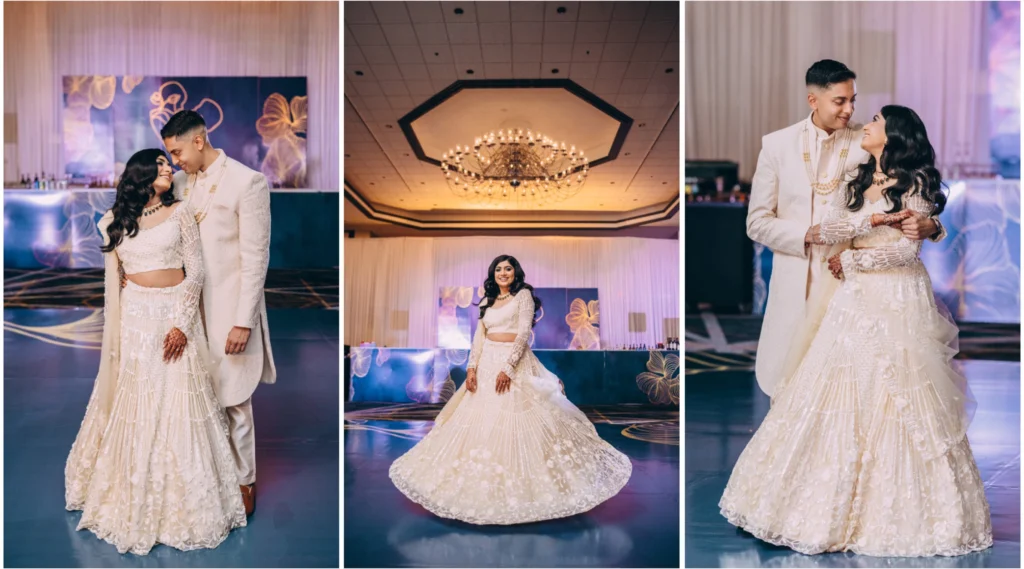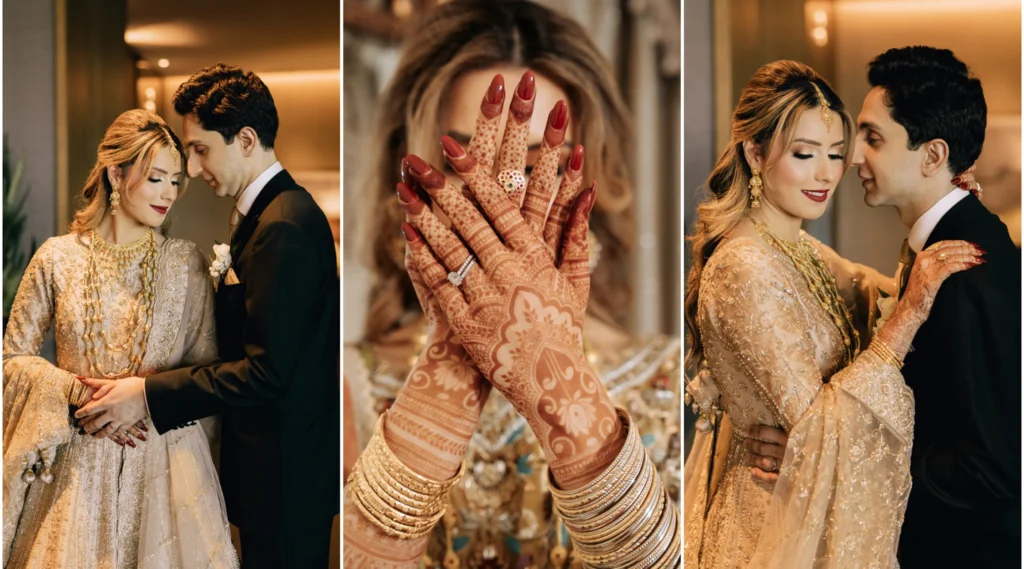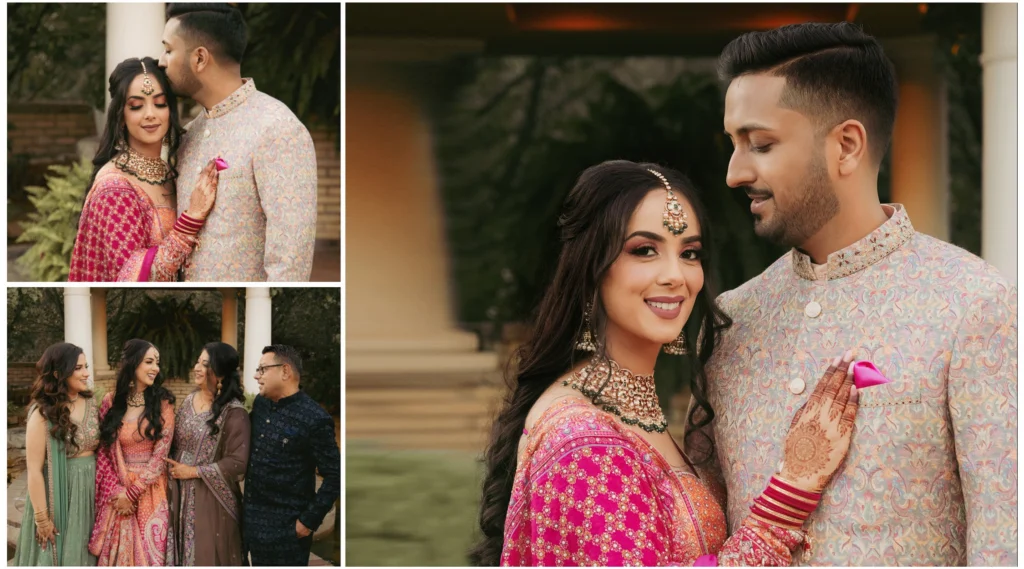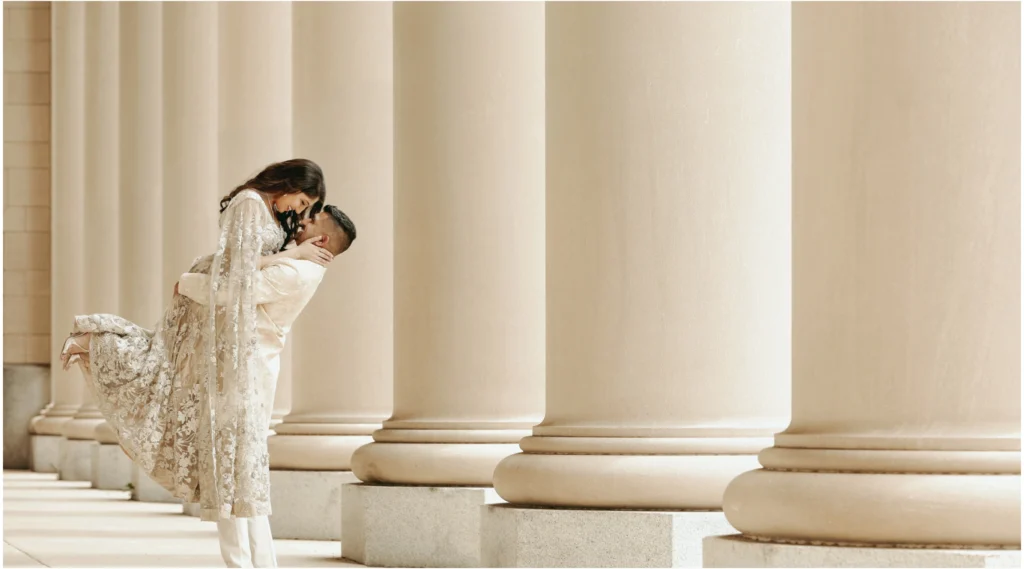













Indian Wedding Photographer Toronto
The bright colors, unique traditions, and big celebrations of South Asian weddings, especially Indian, Sikh, Punjabi, and Muslim weddings, make them popular. We’ve noticed another thing about Indian Wedding Photography: the celebrations can last for days! Many of them begin with an engagement party, followed by a culture-rich ceremony, culminating in a large, boisterous reception full of dancing and music after the wedding. Get the best Indian Wedding Photographer in Toronto with Shan Photography! Shan Photography is a top-rated Indian Wedding Photography Toronto company. Shan Photography has built a solid reputation for capturing the beauty, emotions, and cultural richness of Indian weddings.
FILMS

Address

Phone
1800-540-7945

info@shanphotography.com
Get in Touch
Indian Wedding Photographers In Toronto: Shan Photography
Shan Photography, led by Shan, is dedicated to creating stunning visual narratives that tell the unique story of each couple’s special day. Shan Photography captures candid moments filled with love and joy with an eye for detail and a knack for capturing candid moments.
The Indian wedding industry recognizes Shan Photography for its artistic approach, technical expertise, and commitment to customer satisfaction. A diverse range of beautifully composed images captures the vibrant colors, intricate rituals, and heartfelt moments that make Indian weddings truly special.
No matter the occasion, Shan Photography strives to capture the essence and grandeur of every celebration. Each couple’s love story is beautifully preserved and cherished for a lifetime with their exceptional skills and passion for their craft.
Types Of Indian Weddings
Weddings in India are famous for their vibrant colors, rich traditions, and elaborate ceremonies. The rituals, customs, and traditions vary greatly depending on the region, religion, and cultural background of the families. Indian weddings can be classified into the following types:
- Hindu Weddings: The most common type of Indian wedding is a Hindu wedding. A series of rituals and ceremonies last for several days during these festivals. Typically, there are engagement ceremonies (sagai), mehndi (henna) ceremonies, sangeets (musical evenings), turmeric applications, and a main wedding ceremony (pheras) around a sacred fire. The elders also bless the couple, exchange garlands (jaimala), and tie the knot (kanyadaan) at Hindu weddings.
- Sikh Weddings: Anand Karaj, or Sikh weddings, are elegant yet simple. A gurdwara (Sikh temple) is where the bride and groom circumambulate the Guru Granth Sahib (Sikh holy book) four times while hymns are sung. Symbolizing their spiritual union, the couple takes the caravan, which involves walking around the Guru Granth Sahib four more times. There is a strong emphasis on equality, community, and devotion to God in Sikh weddings.
- Muslim Weddings: Muslim weddings, also called Nikahs, follow Islamic traditions. Typically, they are held in a mosque or at the bride’s home. A marriage contract (nikahnama) is signed by the couple, and the bride accepts the proposal (qubool hai). An Imam or religious authority conducts it. A Muslim wedding often involves the exchange of rings, the reading of Quranic verses, and the blessing of the couple.
- Christian Weddings: Christian weddings in India follow Christian traditions. The elements differ depending on the denomination, but most include a church ceremony officiated by a priest or minister, the exchange of vows, the exchange of rings, and the ordinance of marriage. Rituals may also include lighting the unity candle, signing the marriage register, and blessing the couple by the priest at Christian weddings.
- Jain Weddings: Weddings conducted by Jains follow Jain traditions and rituals. The ceremony involves rituals such as the arrival of the groom (baraat), the exchange of garlands, and the recitation of auspicious mantras. Mangal phera is the main ceremony that involves the couple walking around a sacred fire. Simplicity, non-violence, and spiritual purity are the hallmarks of Jain weddings.
- Parsi Weddings: Zoroastrian customs govern Parsi weddings. Priests typically officiate these ceremonies in fire temples. As they exchange vows, they are symbolized by the holy fire, a symbol of purity and strength. A Parsi wedding also involves rituals like the exchange of rings, blessings from the priest, and the showering of rice and rose petals.
- Punjabi Weddings: Punjabi weddings, a subset of Sikh weddings, are known for their exuberance, music, and dance. A series of pre-wedding rituals characterize the wedding rituals. Often, pre-wedding festivities include the Roka (formal engagement), the Chunni (gift exchange and bride-to-be wearing a red scarf), and the Mehndi (henna application). It consists of exchanging garlands and taking the caravan, a four-time walk around the Guru Granth Sahib. Dance, singing, and feasting continue during the reception (Walima).
Pricing For Indian Wedding Photography In Toronto
The cost of Indian wedding photography in Toronto varies depending on many factors. Pre-wedding consultations, coverage of multiple events, a team of photographers and assistants, high-quality digital or printed images, and post-production editing are usually included in the cost. Prices can also depend on the duration of the Wedding Photography Toronto services, the number of photographers needed, the wedding size, the location, and additional services such as albums or videography. The pricing structure of each Wedding Photographer Toronto or photography studio may vary, so couples need to communicate their specific needs and budget to receive accurate quotes for Indian Wedding Photography Toronto.
Understanding The Rituals And Customs Of An Indian Wedding
The Indian wedding is renowned for its rich traditions, cultural rituals, and vibrant customs. The significance and symbolism of these rituals can be gained by understanding them. Some key rituals and customs characterize Indian weddings:
- Mehndi Ceremony: The Mehndi ceremony involves the application of henna designs to the bride’s hands and feet, as well as to female family members and friends. Love, beauty, and good luck are associated with it, making it an auspicious symbol.
- Sangeet Ceremony: A ceremony is a joyful pre-wedding celebration filled with music and dance. Traditional songs are sung, choreographed dances are performed, and the couple’s union is celebrated.
- Baraat: A Baraat is the groom’s procession to the wedding venue, where he is greeted with much fanfare. Family and friends usually accompany dances to lively music. Processions add a festive and celebratory element to weddings.
- Jaimala: Garlands are exchanged between the bride and groom during the Jaimala ceremony. Their acceptance of each other symbolizes the couple’s official union.
- Pheras: A Hindu wedding is complete with the Pheras. A sacred fire is walked seven times around by the couple, each round symbolizing a vow they make to one another. The Pheras symbolize their commitment, love, and eternal bond.
- Kanyadaan: The bride’s father gives her away to the groom in this ritual, representing his trust and acceptance of her. There are many emotions involved in this heartfelt moment.
- Mangalsutra And Sindoor: A Mangalsutra is a sacred necklace tied around the bride’s neck to symbolize her marriage. The groom applies the red vermilion powder to the bride’s hair, parting as sindoor. These symbols represent the bride’s marital status and the groom’s commitment.
- Vidaai: Vidaai signifies the bride’s departure from her parent’s home to start a new life with her husband. Brides can experience emotional turmoil when they leave their families. This symbolizes the end of one chapter and the new beginning of another.
- Reception: Wedding receptions are grand celebrations where family and friends congratulate the newlyweds. Music, dance, feasting, and gift exchanging are all part of it.
Indian weddings are distinguished by their rich rituals and customs. Each ceremony has deep cultural significance and is integral to the celebration as a whole. Indian weddings are woven into the fabric of beauty and cultural heritage, which is understood by understanding these traditions.
Contact Us: Get in touch with Shan Photography today for inquiries or bookings. We will capture your special moments, and we will create lasting memories together.


